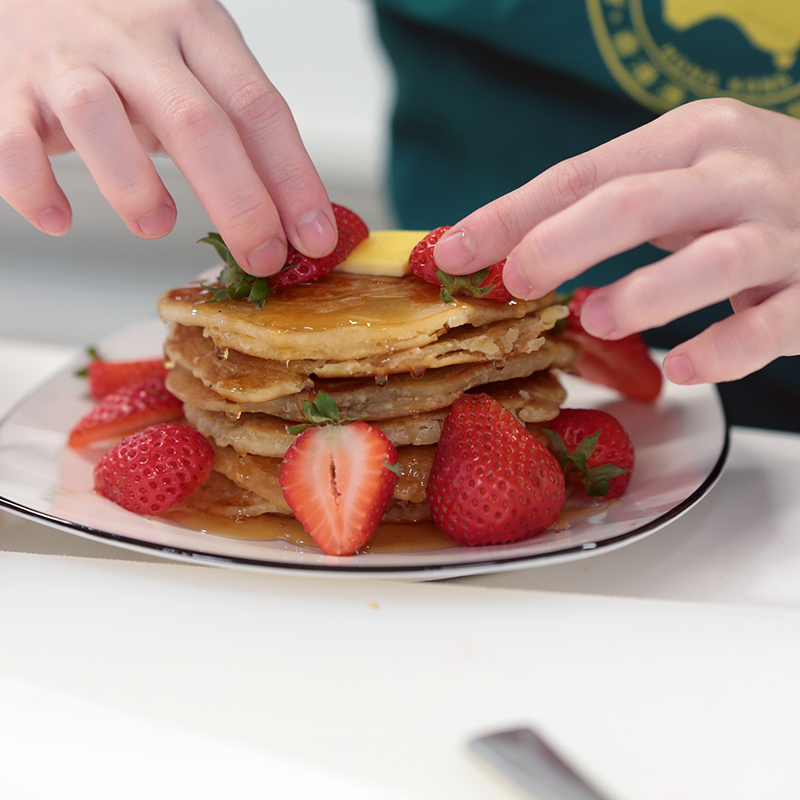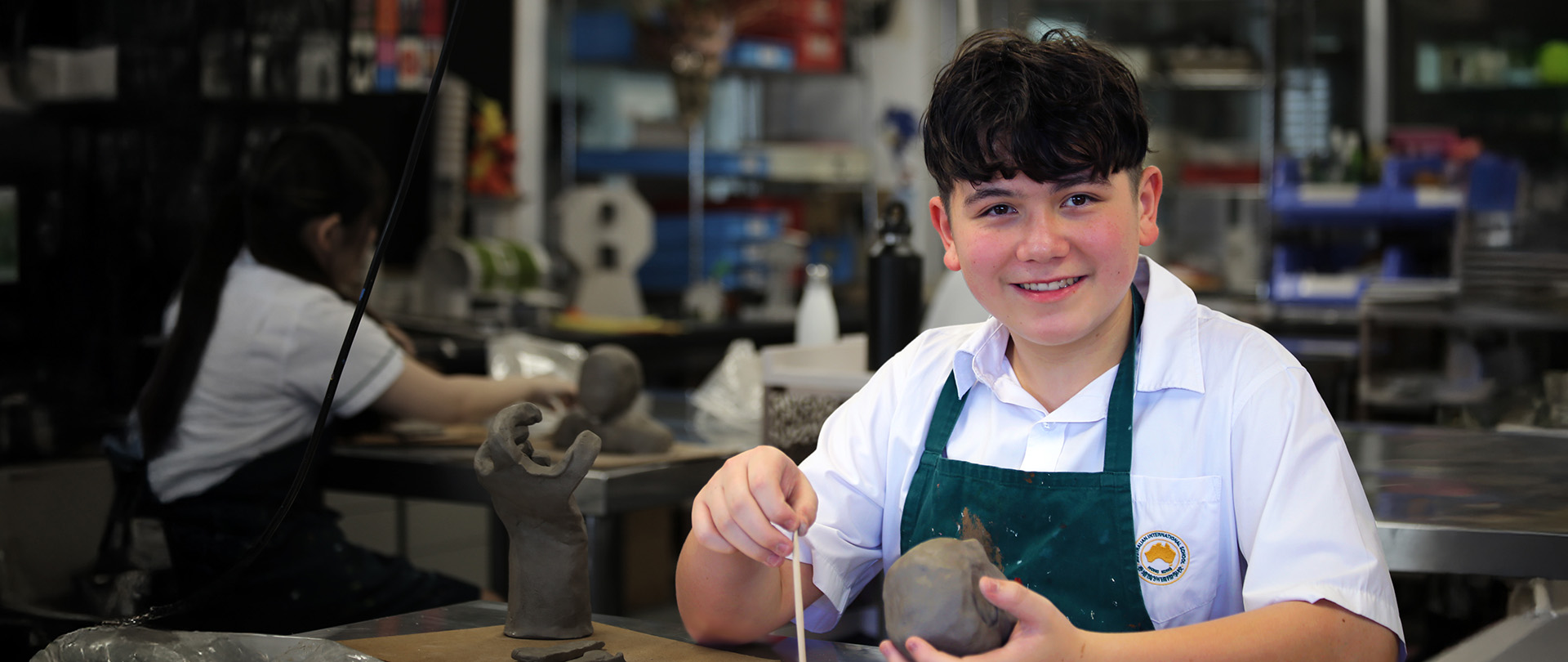The Arts at AISHK are grouped into Performing Arts (music and drama) and Creative Industries (visual arts and technology).
Performing Arts
Music and Drama
Music is taught as a core subject from Reception to Year 8, becoming an elective from Years 9 to 12. Drama is an elective subject from Years 9 to 12. In the classroom students explore a range of musical and theatrical styles, building skills in performance, listening, composition, research, improvisation, and physicality.
Performing Arts offers students the opportunity to take part in a range of instrumental and vocal ensembles and drama troupes, with the further option of learning a musical instrument through the Instrumental Music Programme.
AISHK actively encourages students to showcase their skills at, recitals, school assemblies, annual musical productions, and community events.
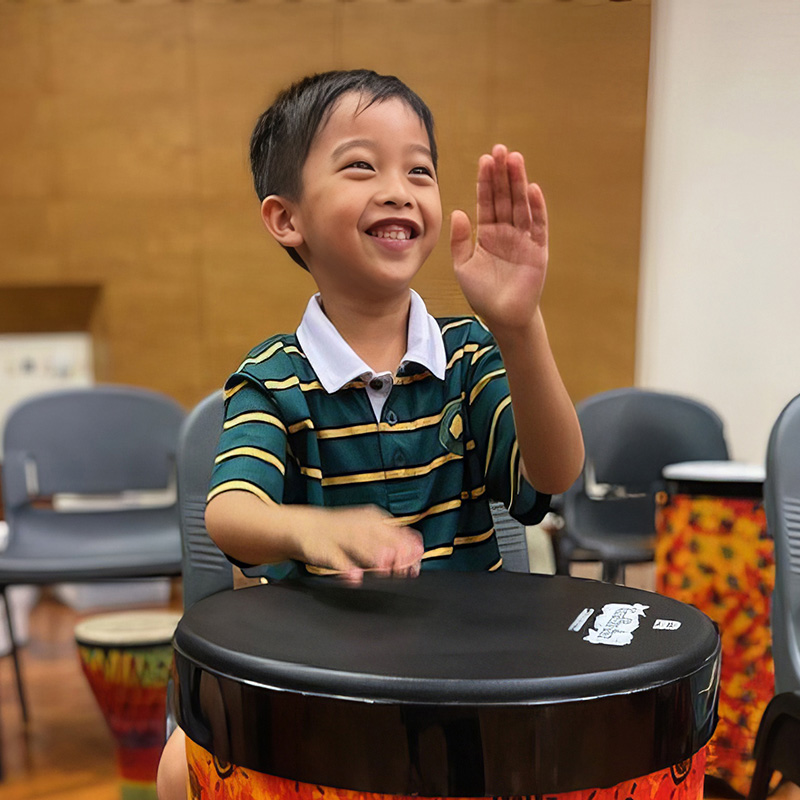
Creative Industries
AISHK Creative Industries department encompasses visual arts, IT, product design and food technology lessons which are supported by the latest facilities and resources. Our campus includes two art studios, two product design workshops, a CAD/CAM suite with laser cutters and 3D printers, an IT suite and makerspace with electronics and robotics, a specialist library and collaboration room as well as a purpose-built food technology classroom.
Students' creative is celebrated in several way throughout including school and public exhibitions, displays and publications.
Visual Arts
Students in the secondary school continue to develop their understanding and practice of various art techniques. They create artworks informed by their investigations into artistic practices, as well as their critical and historical studies. Throughout the secondary school, students have opportunities to display and exhibit their work. The skills acquired through the creative process, such as risk-taking and critical thinking, support their learning across the curriculum.
Visual Arts encompasses a diverse range of mediums, including traditional 2D and 3D forms like painting, photography, and sculpture, as well as non-traditional mediums such as digital art, street art, and animation. Visual Art is mandatory in years 7 and 8, an elective in years 9 and 10, and can be chosen as a subject for both HSC and IB in years 11 and 12, senior studies.
Computer Science & Information Technology
Computer Science is an elective in Years 9 and 10 and can be chosen as a subject for, HSC, in Years 11 and 12.
In Years 9 and 10, the "Computing Technology" course equips students with practical computing skills and knowledge to solve real-world problems using current and emerging technologies. Through project-based learning, they develop technical competence, computational thinking, ethical data handling, and collaborative work skills. Students explore specialized modules such as algorithmic music design, mechatronics/robotics, game design, and software development. This future-focused course prepares students for further technology studies and develops digital literacy skills essential for success in an increasingly technological world.
In Years 11 and 12, the "Software Engineering" course equips students with programming skills and knowledge to design and develop software solutions for real-world problems.
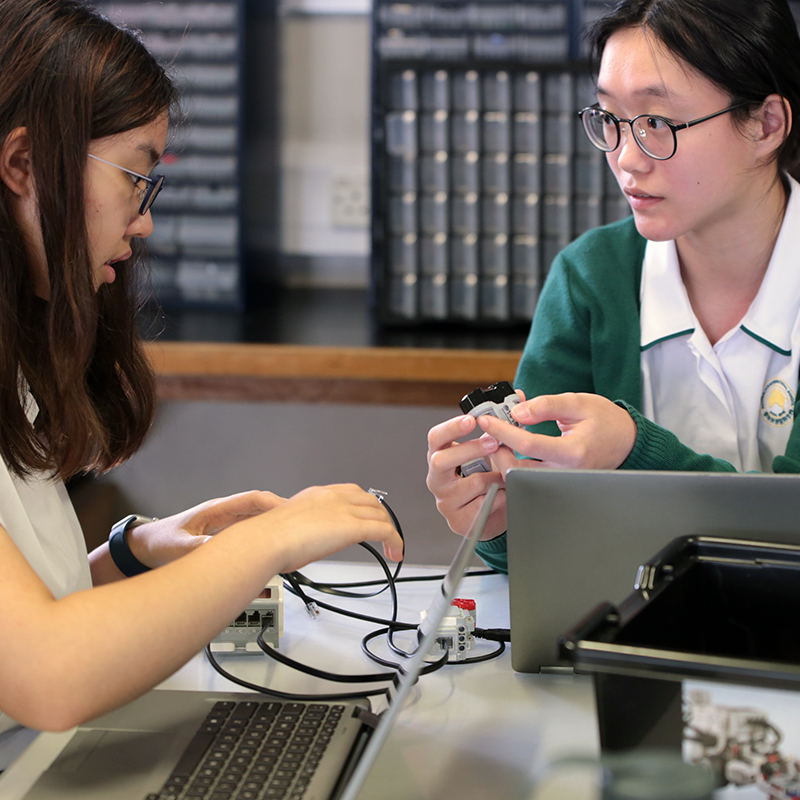
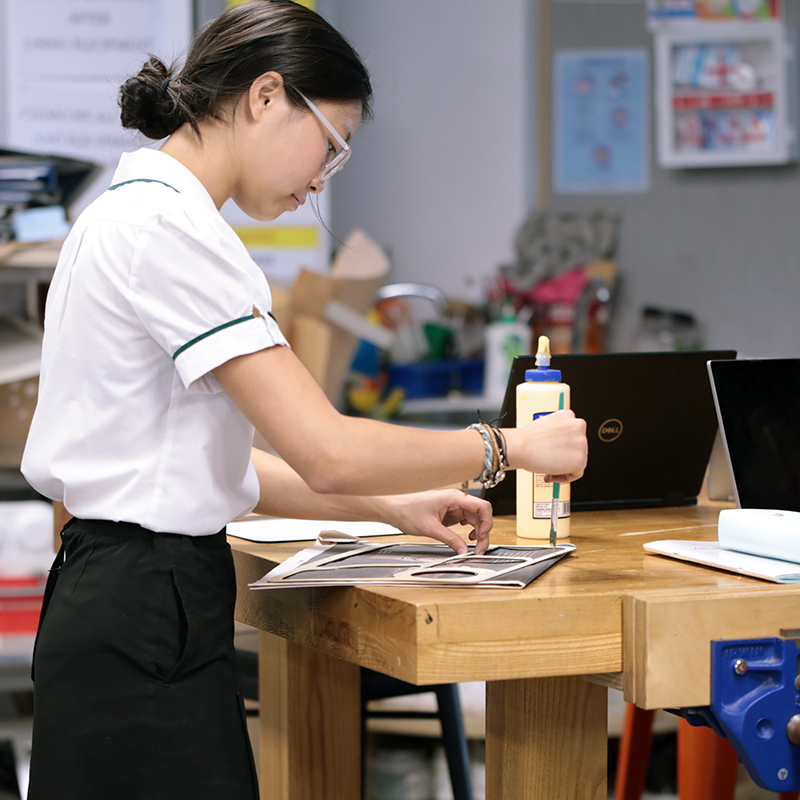
Design and Technology
In Design and Technology lessons, students immerse themselves in the process of designing, producing, and evaluating high-quality solutions. They participate in a variety of practical activities while developing a series of design projects, which serve as the primary learning activity in each unit. These projects result in the creation and documentation of innovative solutions, tailored to the needs and interests of the students.
Project work takes place in diverse settings, including the classroom, workshop, CAD/CAM room, and other specialist environments, with Information Technology seamlessly integrated throughout. Students compile portfolios that document their investigations, research, experimentation, development, and justification of ideas, as well as prototyping and the realisation and evaluation of their design projects.
Additionally, students analyse the impacts of design on society and the environment, emphasising sustainable solutions. The course values problem-solving skills, creativity, and collaboration, fostering a comprehensive learning experience that prepares students for future challenges.
Food Technology
Food Technology is a mandatory course in Year 7 and integrated into the Year 8 Design & Technology course. Our Food Technology kitchen is equipped to professional standards, providing students with a high-quality learning environment. In Years 9 and 10, students who take Design and Technology have the opportunity to continue with Food Technology design projects. In Years 11 and 12, students may choose to complete a Food Technology project as part of their Design and Technology senior studies.
Food Technology in Year 7 begins with students learning basic cutting skills, how to read and follow a recipe, measuring correctly, and understanding the function and nutrition of ingredients. Students investigate food influences and trends, including future foods and sustainable eating. They are assessed on their ability to work safely in a kitchen and to produce recipes to a high standard. The course also emphasises food presentation and styling, combining their understanding of nutrition with creative design.
